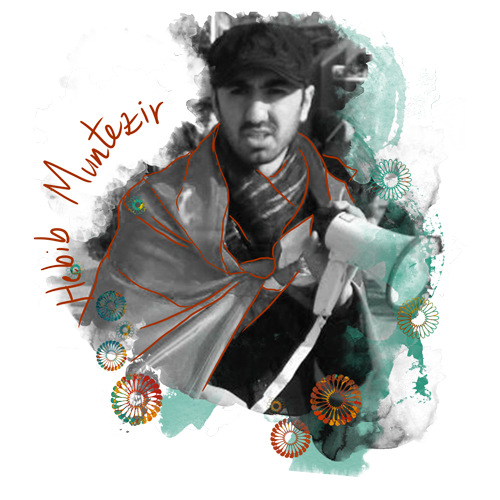 |

|
Hebib Müntezir is an Azerbaijani blogger and social media manager of the non-profit Meydan TV. Müntezir is one of Azerbaijan’s most famous online activists, and in a country where social media is the final platform on which journalists are able to report, his influence has made him a significant annoyance to the Azerbaijani authorities. His YouTube videos have now been watched upwards of 27 million times, and his Facebook page is followed by over 22,000 people.
The organisation Müntezir has aligned forces with, Meydan TV, launched in 2013, and is one of the few news sites critical of the Azerbaijani government and its policies. The site is published in Azerbaijani, English, and Russian.
2015 saw a huge media crackdown in Azerbaijan, with government critics sentenced to long prison terms, and journalists facing harassment and prosecution. The crackdown intensified when Baku, the capital of Azerbaijan, hosted the first European Games – at a significant economic cost to a country already suffering from plummeting oil prices. The clampdown by the ruling New Azerbaijan party, re-elected in 2015 to serve another five years on their 20-year-run, showed their nervousness about the Games, and the international scrutiny that came with them.
With little coverage by traditional media, Azerbaijanis looked online for information, says Müntezir. “During the European Games in Baku in June 2015, our social media content reached over 1.5 million people in a population of less than 10 million,” Müntezir told Index.
Meydan TV’s powerful online presence and outspoken journalists have made them repeated targets during the authorities’ crackdown.
On 16 September 2015, freelance Meydan TV reporter Aytaj Ahmadova and a Meydan TV intern were stopped by police and taken to the organised crime unit. They were released after several hours in which Ahmadova says she was threatened and told to stop doing “opposition work”.
The same day a former Meydan employee Aysel Umudova was summoned by the prosecution service and questioned about her past work.
Then a couple of days later, Shirin Abbasov, a reporter for Meydan, was imprisoned, and authorities searched the home of another Meydan reporter.
The following day three Meydan journalists were detained after flying into Baku airport and questioned for several hours about Meydan. They were summoned by police again on 22 September and told off for speaking to the press after their earlier detention.
Emin Milli, Meydan’s director who is living in exile, told the media that Azerbaijani authorities had also threatened to punish him. According Milli, a threatening note allegedly sent by Azerbaijan’s sports minister read: “We will get you wherever you are and the state will punish you for this smear-campaign against the state that you have organized. You will get punished for this. You will not be able to walk freely in Berlin or anywhere else.”
During this crackdown, social media has been hailed as the only way journalists can freely report on otherwise censored issues in Azerbaijan. “Our social media strategy has been the driving force of our success in terms of audience outreach and engagement,” said Milli.
“Many people in Azerbaijan are afraid to talk to independent media,” said Müntezir. “But citizens still reach out to me to share content and offer support.”





